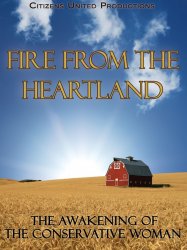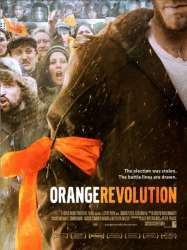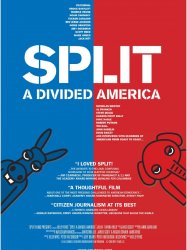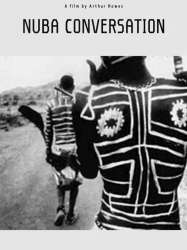Inside the Revolution: A Journey into the Heart of Venezuela est un film Britannique
Inside the Revolution: A Journey into the Heart of Venezuela (2009)

Si vous aimez ce film, faites-le savoir !
- Infos
- Casting
- Infos techniques
- Photos
- Vidéos
- Passages TV
- Citations
- Personnages
- Musique
- Récompenses
Inside the Revolution: A Journey into the Heart of Venezuela is a documentary written and directed by Pablo Navarrete and released by Alborada Films in 2009. Staged in Caracas in November 2008 on the eve of local elections, the documentary offers a grassroots perspective of the Venezuelan Bolivarian Revolution from the people driving the process forward and reflects more widely on the significance of the revolution for the future of Venezuela, US imperialism and socialism.
Synopsis
The film begins by situating the rise of Hugo Chavez within the context of a history of political turmoil in Venezuela beginning with the fall of the Marcos Pérez Jiménez dictatorship in 1958 and climaxing with the popular uprising known as the Caracazo in 1989. From there the film charts the trajectory of Hugo Chavez's presidency through its infamous conflicts with the opposition, the failed coup attempt in 2002 and the series of reforms, Chavez's supporters believe, promote a protagonistic democracy along socialist principles. In the final part the film examines in closer detail the opinions and tensions within the movement regarding Chavez, US imperialism and what the future holds for Venezuela. In particular the film focuses on whether the Bolivarian Revolution represents a real alternative to capitalism or will suffer the same fate of previous socialist experiments.Bande annonce de Inside the Revolution: A Journey into the Heart of Venezuela
Bluray, DVD
Streaming / VOD
Commentaires
Postez un commentaire :
Suggestions de films similaires à Inside the Revolution: A Journey into the Heart of Venezuela
Il y a 8199 films qui ont les mêmes thèmes (dont 515 films qui ont les mêmes 3 thèmes que Inside the Revolution: A Journey into the Heart of Venezuela), pour avoir au final 70 suggestions de films similaires.Si vous avez aimé Inside the Revolution: A Journey into the Heart of Venezuela, vous aimerez sûrement les films similaires suivants :

Fire From The Heartland (2010)
, 1h24Origine Etats-Unis
Genres Documentaire
Thèmes Documentaire historique, Documentaire sur la politique, Politique
Acteurs Janine Turner
Note26%





The documentary looks at the idea of the conservative political female in the United States and how they have impacted and been impacted by the Tea Party movement. Bannon interviews women from different socioeconomic backgrounds and how this has had an effect on their outlook on life and in politics, as well as what they believe what the future will bring and their opinions on how conservative politics and the Tea Party is portrayed in the media.

Orange Revolution (2007)
, 1h32Origine Etats-Unis
Genres Documentaire
Thèmes Documentaire historique, Documentaire sur la politique, Politique
Note74%






Precious Knowledge (2010)
Origine Etats-Unis
Genres Documentaire
Thèmes Le thème de l'éducation, Documentaire historique, Documentaire sur la politique, Politique
Note78%






Split: A Deeper Divide (2008)
Thèmes Documentaire historique, Documentaire sur la politique, Politique
Note65%






Galoot (2003)
, 2h32Genres Documentaire
Thèmes Afrique post-coloniale, Religion, Documentaire sur le droit, Documentaire sur la guerre, Documentaire historique, Documentaire sur la politique, Documentaire sur la religion, Politique, Religion juive

Les statues meurent aussi (1953)
, 30minutesRéalisé par Chris Marker, Alain Resnais
Origine France
Genres Documentaire
Thèmes Afrique post-coloniale, Le racisme, Documentaire sur la discrimination, Documentaire sur le droit, Documentaire historique, Documentaire sur la politique, Politique
Acteurs Jean Négroni
Note74%





« Quand les hommes sont morts, ils entrent dans l'histoire. Quand les statues sont mortes, elles entrent dans l'art. Cette botanique de la mort, c'est ce que nous appelons la culture. »

Origine Royaume-uni
Genres Documentaire
Thèmes Documentaire historique, Documentaire sur la politique, Politique
Acteurs Vasile Albineț, Martin Hancock, Jan Pearson, Jonny Phillips, Ed Stoppard
Note72%





In 1794, French revolutionary Maximilien Robespierre produced the world's first defense of "state terror" - claiming that the road to virtue lay through political violence. This film combines drama, archive and documentary interviews to examine Robespierre's year in charge of the Committee of Public Safety - the powerful state machine at the heart of Revolutionary France. Contesting Robespierre's legacy is Slavoj Žižek, who argues that terror in the cause of virtue is justifiable, and Simon Schama, who believes the road from Robespierre ran straight to the gulag and the 20th-century concentration camp. The drama, based on original sources, follows the life-and-death politics of the Committee during "Year Two" of the new Republic. It was a year which gave birth to key features of the modern age: the thought crime; the belief that calculated acts of violence can perfect humanity; the notion that the interests of "mankind" can be placed above those of "man"; the use of policemen to enforce morals; and the use of denunciation as a political tool.

Nuba Conversations (2000)
, 56minutesOrigine Royaume-uni
Genres Documentaire
Thèmes Afrique post-coloniale, Religion, Le terrorisme, Documentaire sur le droit, Documentaire sur la guerre, Documentaire historique, Documentaire sur la politique, Documentaire sur la religion, Documentaire sur le terrorisme, Politique, Religion musulmane
Ten years after shooting Kafi's Story British filmmaker Arthur Howes reentered in Sudan clandestinely to find out what had happened to the Nuba peoples of Torogi.

Checkpoint (2003)
, 1h20Origine Israel
Genres Documentaire
Thèmes Afrique post-coloniale, Religion, Documentaire sur le droit, Documentaire sur la guerre, Documentaire historique, Documentaire sur une personnalité, Documentaire sur la politique, Documentaire sur la religion, Politique, Religion juive
Note77%





Checkpoint is shot in cinéma vérité style with no narration and very little context. Shamir himself is absent from the film except for one scene in which a border guard asks him to try to make him "look good," and Shamir asks how he should do that.

Thèmes Documentaire historique, Documentaire sur la politique, Politique
Concerned about the future of the U.S., Knapp heads to Washington D.C. to address his problems. When he had difficulties accomplishing his goals, he decided to alter his strategy and to pursue his own earmark. Knapp hired a lobbyist and set out to obtain government funding for his project, which was to construct a museum of government waste. The idea for the project came from filmmakers Ellen and Jim Hubbard asking themselves "why can't Congress get a handle on wasteful spending?," "how could we become a part of the process to see how and why Congress makes spending decisions?," and “what’s the ultimate ridiculous earmark that we can come up with?’”
 Connexion
Connexion